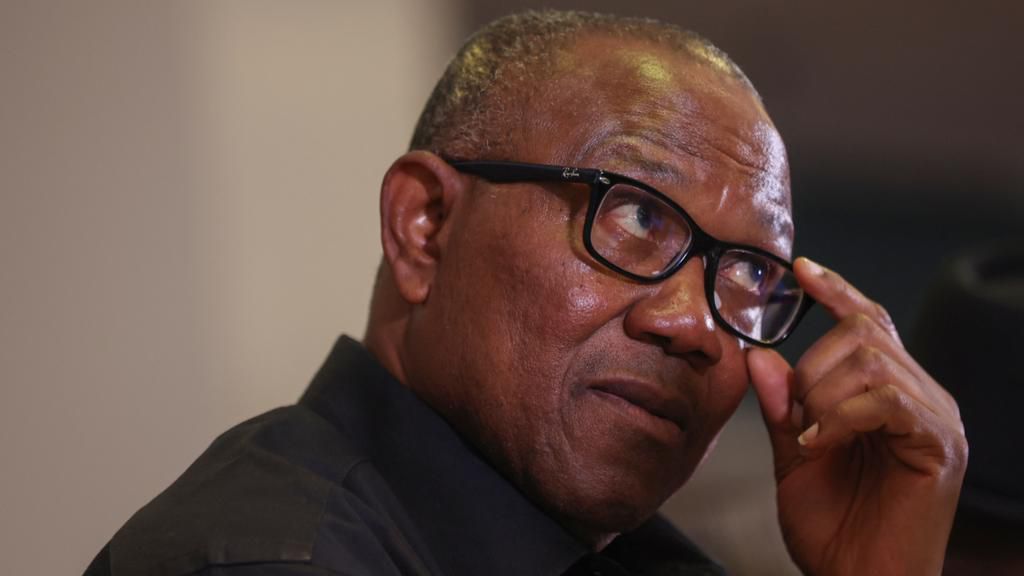Peter Obi accused of undermining opposition unity ahead of 2027 elections

```html Peter Obi Accused of Undermining Opposition Unity Ahead of 2027 Elections A youth group, Omenuko Ndigbo United, has publicly accused former Labour Party presidential candidate Peter Obi of distancing himself from ongoing coalition efforts among opposition parties in preparation for the 2027 general elections. The group alleges that Obi's actions could jeopardize the chances of the Igbo people producing the next president of Nigeria.
In a statement released on June 26 in Owerri, Comrade Benjamin Madu, President of Omenuko Ndigbo United, voiced the group's concerns about Obi's apparent lack of involvement in the attempts to form a united front against the ruling All Progressives Congress (APC). The statement suggests that Obi is prioritizing his own ambitions over the collective goal of unseating the current administration.
Concerns Over Fragmentation of Opposition According to Omenuko Ndigbo United, Obi's perceived detachment echoes his actions during the 2023 elections. The group believes that Obi contributed to the division of the opposition, ultimately facilitating the APC's victory. They fear a repeat of this scenario in 2027, potentially hindering the South-East's presidential aspirations.
"We are not happy with Peter Obi. Instead of joining hands with others to rescue Nigeria, he seems to be focused only on himself. This is not the time for selfish politics," Madu stated.
Potential Missed Opportunity for the Igbo People The youth group emphasized that the upcoming election cycle presents a significant opportunity for the Southeast to produce Nigeria's next president, especially with the current president hailing from the South.
"The current president is from the South. This is the best time for Ndigbo to push for the presidency. But we need unity. If Obi leaves the coalition, it will be harder for an Igbo person to become president in 2027 or even in 2031," the group warned, highlighting the importance of a united opposition.
The statement also hinted at suspicions regarding Obi's motives, suggesting the possibility of him working covertly to benefit the APC or President Bola Tinubu. "Obi is not fully part of the plans, and it’s starting to look like he is playing another game. We need to know what he really wants."
Call for Clarity and Transparency The group urged Obi to publicly clarify his political position, referencing criticisms from APC-linked figures and warnings from investigative journalists. They assert that Nigerians deserve transparency from their political leaders.
"Nigerians deserve honesty. Peter Obi should stop pretending and tell us where he stands. We will not allow what happened in 2023 to happen again, especially if it will hurt the Igbo cause," the statement concluded.
Expert Analysis: Challenges to Opposition Unity Political analyst Dr. Chidi Okoro, speaking on the matter, emphasized the historical challenges in forming a cohesive opposition in Nigeria. "Nigerian politics has often been characterized by regional and ethnic divisions, making it difficult for opposition parties to unite under a common banner. The 2023 elections demonstrated this, with multiple strong opposition candidates splitting the vote," he explained. "For the 2027 elections, a genuine coalition built on shared values and a clear alternative vision is crucial, but personal ambitions and ideological differences often get in the way."
Historical Context: Opposition Alliances in Nigeria Throughout Nigeria's political history, attempts at forming grand opposition alliances have met with varying degrees of success. The merger of several parties to form the APC in 2013, which eventually led to the ousting of the then-ruling PDP in 2015, stands as a notable example of a successful opposition coalition. However, numerous other attempts have failed due to internal conflicts, lack of clear leadership, and an inability to bridge ideological divides. The current efforts to unite opposition parties face similar hurdles, and the allegations against Peter Obi underscore the challenges involved in forging a united front.
Looking Ahead: The Road to 2027 The 2027 general elections are still some time away, but political maneuvering is already underway. The ability of opposition parties to overcome internal divisions and present a credible alternative to the ruling APC will be a key factor in determining the outcome. The accusations leveled against Peter Obi highlight the complexities and potential pitfalls in this process. How Obi responds to these allegations and whether he actively participates in coalition-building efforts will be closely watched in the coming months. ```
Originally sourced from: pulse Ng
